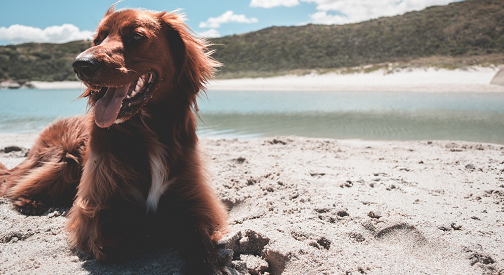
As the scorching heat of summer engulfs us, it's crucial to be mindful of our pets and protect them from heat-related dangers. Heat exhaustion can be life-threatening for pets, but with proper awareness and timely intervention, it can be prevented. This article highlights the signs of heat exhaustion in pets and provides essential guidance on treatment and what to avoid.
Understanding Heat Exhaustion
Heat exhaustion occurs when a pet's body temperature rises to dangerous levels, overwhelming their ability to cool down effectively. Dogs and cats are particularly susceptible, as they cannot regulate their body temperature as efficiently as humans. Common causes include prolonged exposure to high temperatures, inadequate ventilation, and limited access to water or shade.
Recognizing the Signs of Heat Exhaustion
Being able to identify the signs of heat exhaustion in pets is crucial for prompt intervention. Watch out for the following symptoms:
- Excessive panting and drooling
- Rapid breathing and increased heart rate
- Weakness and lethargy
- Dizziness and disorientation
- Vomiting and diarrhea
- Dark red gums and tongue
- Collapse or seizures
Treatment Measures
If you suspect your pet is suffering from heat exhaustion, immediate action is vital. Follow these steps:
- Move your pet to a cool and shaded area: Indoors with air conditioning is ideal.
- Offer fresh water: Encourage your pet to drink small amounts of water.
- Cool your pet down gradually: Apply cool (not cold) water to their paws, ears, and belly. Avoid using ice-cold water or ice packs, as it may cause the body temperature to drop too rapidly.
- Use a fan or air circulation: Help lower the ambient temperature around your pet.
- Contact your veterinarian: Even if your pet seems to recover, it's essential to seek professional advice.
What NOT to Do
While treating heat exhaustion, it's crucial to avoid certain actions that could worsen the situation:
- Never use ice-cold water or ice packs directly on your pet. This can cause the blood vessels to constrict, hindering proper cooling.
- Do not leave your pet unattended in a hot car or confined spaces without proper ventilation.
- Avoid excessive cooling measures, such as submerging your pet in cold water, as it can lead to shock.
- Refrain from force-feeding water to an unconscious pet, as it may lead to aspiration pneumonia.
Preventing heat exhaustion in pets starts with awareness and responsible care. By recognizing the signs early on and taking immediate action, we can save our furry friends from the dangers of overheating. Remember, in case of severe or prolonged symptoms, always consult your veterinarian for professional assistance. Stay cool, stay vigilant, and keep your pets safe this summer!

Comments (0)
Back to Blog